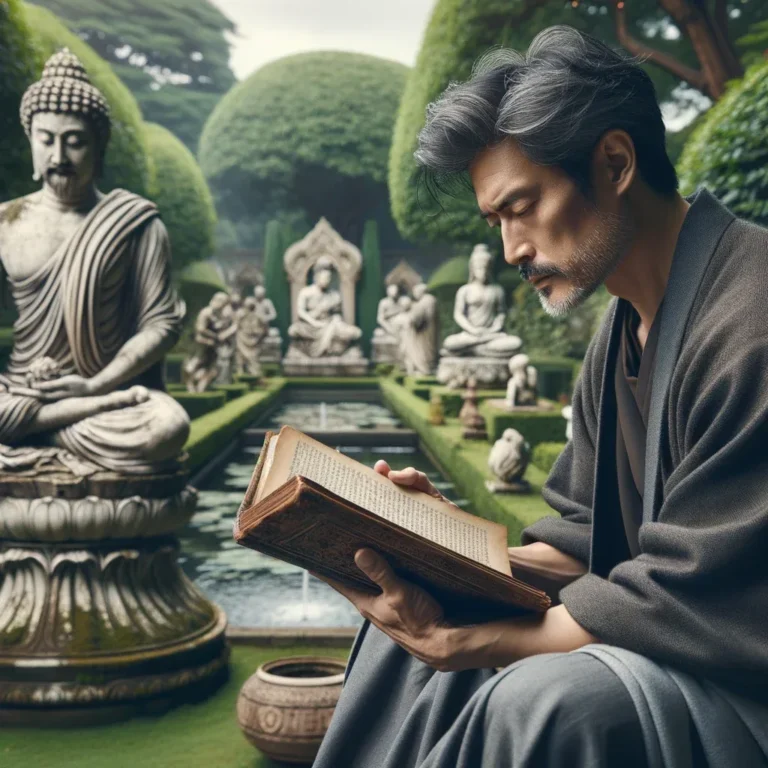
Letter 12 from Seneca to Lucilius, “On Old Age”, is a reflection on the inevitability of old age and the passage of time. Seneca argues that although old age can bring signs of decay, it can also be a time of pleasure and satisfaction if we know how to make the most of it. It encourages acceptance of death and appreciation of each day.

Letter 11 from Seneca to Lucilius, entitled “On the Blush of Modesty”, is a reflection on human nature, wisdom and modesty. Seneca explores the idea that certain physical characteristics, such as blushing, are inherent and cannot be completely overcome, even with wisdom. He concludes the letter with useful and wholesome advice about the importance of having a role model of character and behavior.

Letter 10 from Seneca to Lucilius, titled “On Living for Oneself,” explores the importance of self-reliance and inner wisdom. Seneca advises Lucilius to avoid the company of others and to seek peace within himself. He warns against the dangers of recklessness in solitude and emphasizes the need for self-control and self-understanding. Seneca concludes the letter with advice for living a life of integrity and honesty, both in public and private.

Seneca's Letter 9 to Lucilius offers a deep analysis of self-sufficiency and true friendships in Stoic philosophy. Seneca highlights the duality between the wise man's ability to be content with himself and the importance of friendships for the cultivation of virtue. He emphasizes the distinction between genuine friendships and utilitarian relationships, highlighting the wise man's inner serenity in the face of adversity. The card presents valuable insights into the search for happiness and the strength of the soul.

Seneca's Letter 8 to Lucilius offers profound insight into the pursuit of wisdom and virtue through active isolation, highlighting the importance of moderation, simplicity and service to Philosophy. Seneca emphasizes the need for self-improvement, bequeathing valuable teachings to future generations and providing guidance on the true nature of happiness and personal fulfillment.

The article explores Seneca's Letter 7 to Lucilius, which warns about the dangers of mixing with crowds, comparing them to a spectacle that can corrupt character. Seneca confesses that even he is not immune to these negative influences, highlighting that exposure to violence and immoral behavior can rekindle old vices. He uses powerful metaphors, such as a sick patient and cruel stadium games, to illustrate how crowds can affect even the most virtuous, and emphasizes the importance of associating with people who encourage us to improve. The article concludes by reflecting on Seneca's message that we should pursue self-improvement and education for ourselves rather than for the approval of the crowd.

Seneca's Letter 6 highlights personal transformation, the value of true friendship, and the importance of sharing knowledge. He reflects on self-improvement, the discovery of personal flaws, and expresses his desire to share wisdom with Lucílio, highlighting the Stoic idea of learning through coexistence and contribution to the common good. The letter also explores the notion of personal progress through Hecato's quote, highlighting the idea of being friends with oneself as a significant step in the journey of self-discovery and contribution to humanity.

Seneca's Letter 5 to Lucilius discusses the harmonization of philosophical virtue with everyday life, emphasizing moderation, external conformity, and simplicity. Seneca highlights the importance of continuous self-improvement, discourages ostentation, and advocates a subtle and respectable distinction between the philosopher and the world. The letter also explores the interconnection between hope and fear, and the need to live in the present, providing deep insight into how philosophy can be lived pragmatically, inspiringly, and in harmony with society and nature.

Seneca's Letter 4 to Lucilius, explored in this article, delves into the human relationship with death, emotional maturity and self-improvement, aligning with the Stoic principles of acceptance, focus on internal control and the pursuit of virtue. Through reflections on the transition to wisdom, facing irrational fears, serene acceptance of death, inadequate appreciation of life, resilience, instability of fortune and simplicity, the article highlights how Stoic teachings can assist in the search for a full and serene life , even in the face of the inevitability of death.

In this third letter from Seneca to Lucilius, the Stoic philosopher explores the concept of true friendship. He highlights the importance of mutual trust, careful judgment before granting trust, and open communication in genuine friendships. Furthermore, Seneca addresses the need to balance activity and rest in life, following Stoic principles for a virtuous life.









